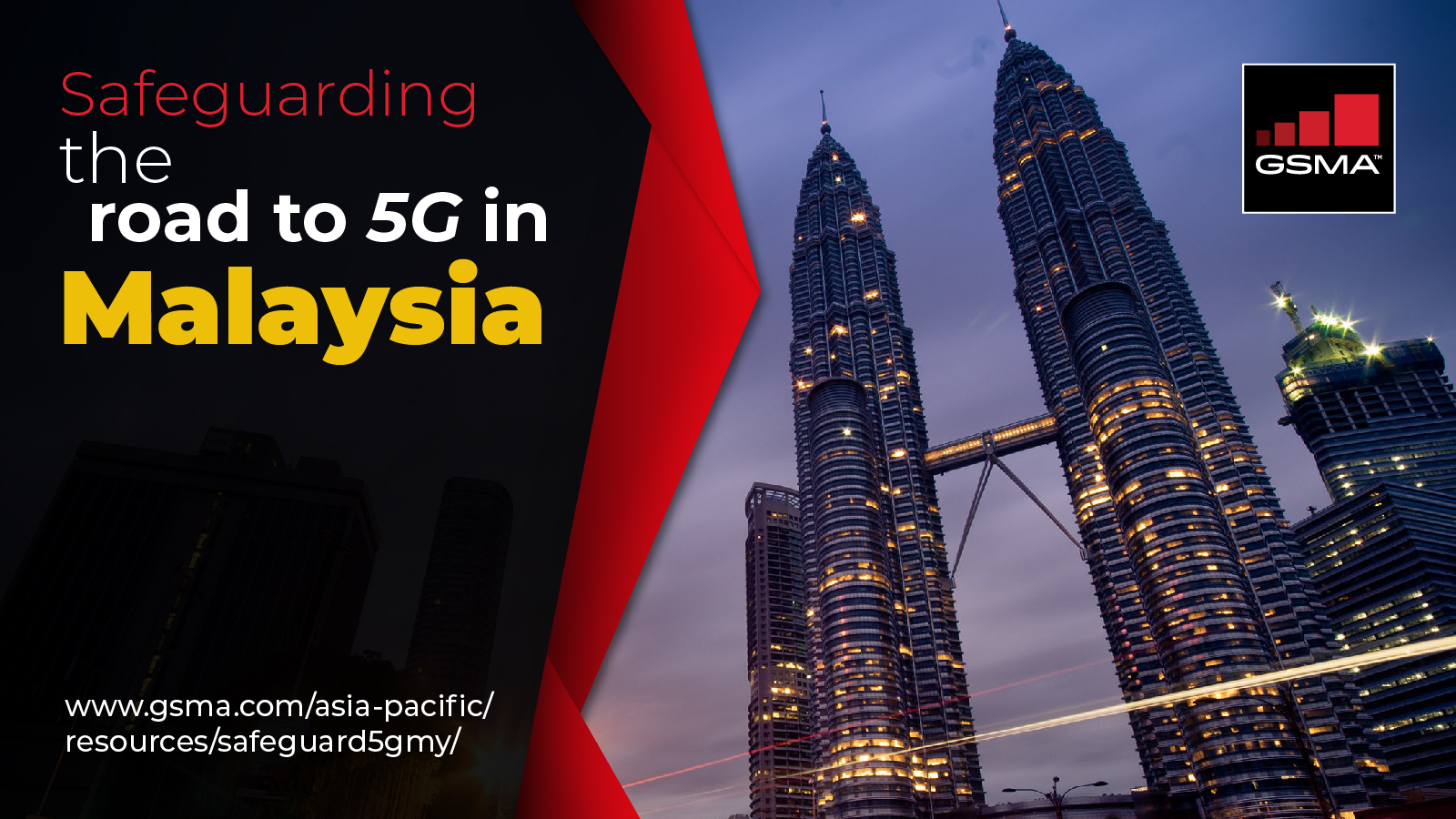An assessment commissioned by GSMA examined the key risks for the Malaysian Government’s proposal for a Single National 5G network and recommended measures for success
3 September 2021, London – GSMA today shares measures to help ensure the success of Malaysia’s proposed rollout of Digital Nasional Berhad (DNB), a Single Wholesale Network (SWN) to deliver 5G services. As recommended in a report commissioned by the GSMA from DT Economics[1], these actions include:
- Clarify DNB’s mandate and regularly monitor its performance against its strategic objectives
- Introduce a fit for purpose wholesale regulatory regime at the same time as the DNB starts its commercial operations
- Retain flexibility to allow alternative delivery options for 5G networks and services in Malaysia
The report assessed the plan from the Malaysian Government to deploy a 5G network through the special purpose vehicle, DNB. It examined the track record of SWNs in other markets around the world, uncovering evidence of failed deployments, slow rollout, poor service quality and profitability challenges. The report warned that without clear mitigation strategies, the proposed SWN network for 5G in Malaysia faces specific risks, hindering the country’s ambition to be a leader in the regional digital economy and high-income nation.
“We call on the Malaysian Government to follow specific recommendations identified in the report to help mitigate the risks associated with SWN deployment. A pragmatic approach is necessary by all parties to ensure DNB delivers the next-generation connectivity that Malaysia needs. Malaysia has a thriving mobile economy and a growing digital sector, but the Single Wholesale Network model proposal risks that. 5G technology is ready to be deployed rapidly, and Malaysian operators have already made significant infrastructure investments,” said Julian Gorman, Head of Asia Pacific, GSMA.
The three mitigating measures:
- Clarify DNB’s mandate and regularly monitor its performance against its strategic objectives: Clarify DNB’s strategic objectives and specific roles and responsibilities. It would be preferable to undertake a mandated commercial and regulatory review of DNB, with the ability to reform and change elements of its governance structure. This review could be conducted by the Government of the Malaysian Communications and Multimedia Commission (MCMC) every two to three years.
- Introduce a fit for purpose wholesale regulatory regime at the same time as the DNB starts its commercial operations: This will be key to ensuring regulatory certainty and a level playing field amongst all operators in the retail market. It is essential to clarify the regulatory obligations that DNB must comply with around the provision of access, new product development, wholesale access prices, quality of service and network resilience. If the regulatory framework is delayed, DNB should commercially negotiate its wholesale access prices in the interim. These prices must be made transparent to the whole industry to minimise competitive distortions.
- Retain flexibility to allow alternative delivery options for 5G networks and services in Malaysia: There are always risks of delays and other unforeseen developments in any big infrastructure project. There is merit for Government to consider alternative options for network delivery. Such choices include allowing current MNOs to use their existing spectrum to provide 5G services, deploy 5G networks in specific geographies/sectors of the economy, and enter into co-investment agreements with DNB. Alternative delivery options are particularly important for providing 5G services to the enterprise sector, where customer requirements are likely to be more specific and stringent. The timely delivery of 5G services to the enterprise sector would also allow the Malaysian economy the opportunity to spring back from the economic and societal challenges of the pandemic.
Other key findings of the report include:
- By entrusting the 5G network deployment to DNB, a nationalised monopoly will replace the competitive wholesale market. Existing Mobile Network Operators (MNOs) will continue to compete in providing 4G (and lower technology) mobile services. At the same time, be entirely reliant on wholesale access from DNB for 5G services.
- From the insights of four global case studies coupled with the known risks associated with a SWN model, there is absence of a clear market failure to justify the proposed intervention in the 5G market.
- A monopoly with exclusive rights to offer 5G wholesale services (and with no clarity on the framework for how its prices will be regulated) will be to the detriment of consumers and enterprises and the broader ambitions of Malaysia to digitise the economy.
– ENDS –
About GSMA
The GSMA represents the interests of mobile operators worldwide, uniting more than 750 operators with almost 400 companies in the broader mobile ecosystem, including handset and device makers, software companies, equipment providers and internet companies, as well as organisations in adjacent industry sectors. The GSMA also produces the industry-leading MWC events held annually in Barcelona, Africa, Los Angeles and Shanghai, as well as the M360 Series of regional conferences. For more information, please visit the GSMA corporate website at www.gsma.com. Follow the GSMA on Twitter: @GSMA.
[1] “Safeguarding the road to 5G in Malaysia – An economic risk assessment of Malaysia’s 5G plan”, August 2021, DT Economics



